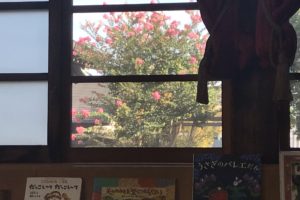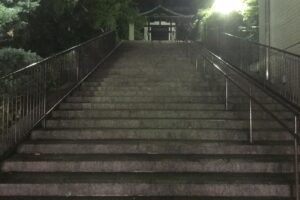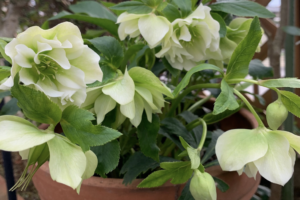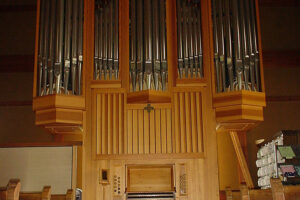
A New Vision of Justice and Peace
Today is the first Sunday of Advent in the year of our Lord 2019. We are still here! The world has not ended, not yet.
The word Advent suggests the coming of Christ, and so we have been brought up in the Christian faith to think of Advent as the time when we look forward to the birth of Christ, celebrated at Christmas. That’s good. I hope that when the time comes you will have a happy and blessed Christmas.
But wait a moment. On the first Sunday of Advent what do we hear about in our readings from the Scriptures? They seem to be about the ending of the world. Every year, at this time, we are expected to think about the future, and that means about the end of the world as we know it.
This year we are starting again with Year A in the cycle of readings, so the readings are a little different from last year, and the year before. This time there seem to be two very different ways of looking for the future, or the end. The first is based on Jewish hopes for a wonderful future based on Jerusalem. The second is addressed to individuals who are challenged in their lives by the person of Jesus Christ. In those early days of the Christian faith, some of the people who looked up to the person of Jesus were Jewish, and some were not.
So first, how was Isaiah, the son of Amoz, looking at the future? In his vision the temple of the Lord would be seen on a high mountain, and people from all over the world would go up to it to receive instruction about how to live. And this Lord, of the Jews, would also judge or arbitrate between the nations.
On the other hand, this does not seem to be the vision of all the other nations. There are some good international organisations today, such as the United Nations, and there is even the International Court of Justice, located in The Hague. But these are not in Jerusalem, and politically speaking, they could not be. So there is a problem about the limited ethnic basis of this hope as expressed by Isaiah.
Of course, we are all impressed by the words: “they shall beat their swords into plowshares, and their spears into pruning hooks; nation shall not lift up sword against nation, neither shall they learn war any more.” If only! That is just what I was thinking during the visit of Pope Francis to Japan, and especially to Hiroshima and Nagasaki, when he prayed for the abolition of nuclear weapons. I wonder if Pope Francis asked Prime Minister Abe to tell his friend President Trump to start abolishing nuclear weapons. I sincerely hope so.
When I was a teenager, more than 60 years ago, I also prayed for the abolition of nuclear weapons in the whole world. But not only nuclear weapons. When I was 16, I was taught at school how to shoot with a gun, as if I were a soldier, but one day in the middle of shooting practice, I put down the gun and said that I was not going to do this. My teachers were shocked. But I never picked up a gun again. The only way to get nuclear weapons to be abolished, is to make the politicians abolish them. And after that they can abolish their swords and their spears as well. Yes please. No more weapons. If only! In this respect, I claim the vision of Isaiah as my own.
And yet the ethnic problem is still there. And we find it again in the words of the Psalm, when we read: “For the sake of my relatives and friends I will say, ‘Peace be within you.’” “For the sake of my relatives and friends”, it says. But what about the people who are not my relatives and friends? Perhaps it doesn’t matter about them! (?) When the American bombers dropped atomic bombs on Hiroshima and Nagasaki, they were not dropping them on their relatives and friends. And when the Japanese armies went around attacking other countries, they were not attacking their relatives and friends. So you see, the problem lies in the limited ethnic consciousness. Of course, we have seen the same problem in the countries of Europe. We find racism there. And we find patriotism there too, which is easily turned into racism by politicians.
I think the new Emperor of Japan has made a very good start. In his o-kotoba (his formal words of accession) he began by saying that he acceded to the throne in accordance with the constitution, and he ended with the hope that there would be peace and harmony among all the nations of the world. I hope these words will never be forgotten during his time as Emperor. And I hope the politicians listened to them very carefully.
It may be that you think my words today are too political for a sermon in church. But the words of the prophet Isaiah, and the words of the psalmist, are very political. And it is not at all surprising that Christ came to be known as the Prince of peace. So, therefore, I want everybody to wake up! These matters are all very urgent. As Christians we must be awake, and as we go about daily life, we must always be looking for ways to make peace, to bring peace, to “our relatives and friends” yes, not least to them, but not only to them. We must have the courage to share this message with all kinds of people, including difficult ones.
It will probably be Christmas on December 25. And Christmas lasts for 12 days. Please remember that! Especially here in Japan, where the media tell us that it is finished on December 26. But quite apart from that, above all, let us be ready for the coming of the Son of Man, every day. As Paul said: “the night is far gone, the day is near.” And among those strange and strong sayings in the Gospel of Matthew, we hear that “the Son of Man is coming at an unexpected hour.” Let us pray that we will somehow be there, to share in the great vision of justice and peace throughout the world. Amen.














